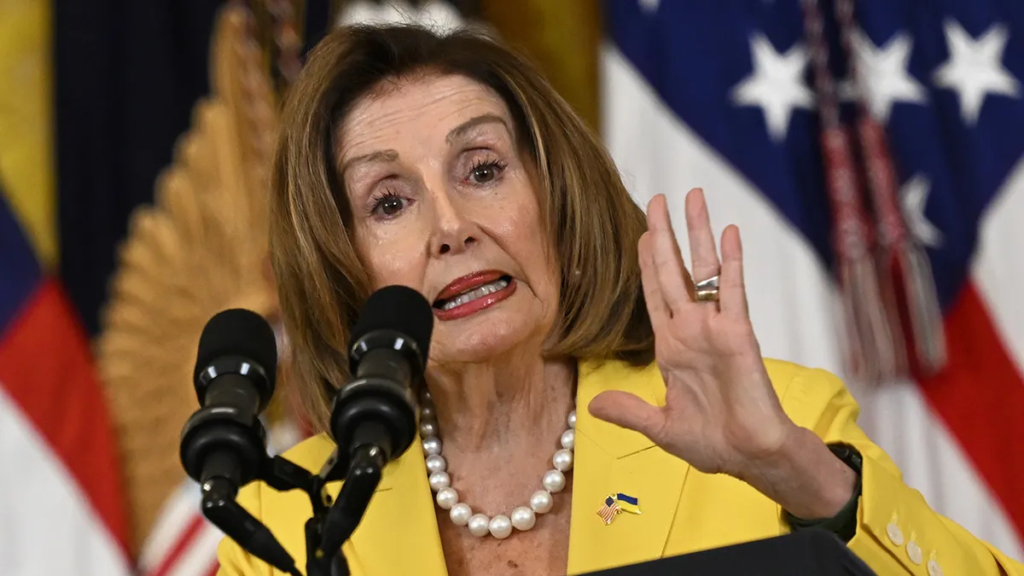Nancy Patricia D’Alesandro Pelosi, born on March 26, 1940, in Baltimore, Maryland, is an iconic figure in American politics. As a member of the Democratic Party and the first woman to serve as Speaker of the U.S. House of Representatives, Pelosi has left an indelible mark on the nation’s legislative history. Her career spans more than three decades and is defined by her unyielding commitment to progressive values, political acumen, and ability to navigate some of the most challenging moments in U.S. governance.
Pelosi’s leadership has been instrumental in the passage of landmark legislation, her influence shaping issues from healthcare and economic recovery to climate change and social justice. While she retired from leadership roles in 2023, Pelosi remains a powerful voice in the Democratic Party and continues to represent her district in Congress. Her legacy is one of groundbreaking achievement, strategic brilliance, and unwavering dedication to public service.
Early Life: A Political Foundation
Nancy Pelosi was born into a politically active Italian-American family in Baltimore. Her father, Thomas D’Alesandro Jr., was a notable New Deal Democrat who served as a U.S. Congressman and later as the Mayor of Baltimore. Her mother, Annunciata D’Alesandro, was equally involved in community affairs and politics, encouraging Pelosi’s early interest in governance and public service. Pelosi grew up as the youngest of seven children in a household steeped in civic engagement and political strategy.
During her formative years, Pelosi attended Institute of Notre Dame, a Catholic high school for girls, where she excelled academically. She later enrolled at Trinity College in Washington, D.C., earning a bachelor’s degree in political science in 1962. Living in the nation’s capital provided Pelosi with a front-row seat to American politics, sparking a lifelong passion for public service.
In 1963, Pelosi married Paul Pelosi, a successful businessman. The couple initially lived in New York before relocating to San Francisco, California, where they raised their five children. It was during this time that Pelosi began her involvement in Democratic Party politics, initially as a volunteer fundraiser and organizer.
Entry into Politics: Building a Congressional Career

Nancy Pelosi’s official political career began in 1987, when she won a special election to represent California’s 5th Congressional District (later redistricted as the 12th and then 11th Districts). Her victory followed years of active involvement in Democratic politics, during which she worked behind the scenes to support candidates, fundraise, and advocate for the party’s platform.
Upon joining the U.S. House of Representatives, Pelosi quickly earned a reputation as a diligent legislator and coalition builder. Over the years, she worked on issues ranging from healthcare to education, showcasing her commitment to advancing progressive values. As a staunch supporter of women’s rights, Pelosi championed initiatives aimed at closing gender gaps in employment and education.
Climbing the Leadership Ladder: Minority Leader to Speaker of the House
In 2002, Pelosi was elected House Minority Whip, becoming the first woman to hold this position. Shortly afterward, she ascended to the role of House Minority Leader, where she demonstrated her ability to unify the Democratic caucus and navigate legislative challenges. Her strategic skills and ability to foster collaboration within her party positioned her for an even greater role.
In 2007, Nancy Pelosi made history when she was elected as the Speaker of the House, becoming the first woman to ever hold this position in the U.S. Congress. As Speaker, she led the House with a firm but empathetic hand, navigating the complexities of legislative governance and fostering consensus among members of her diverse caucus.
Pelosi served as Speaker during two non-consecutive periods—2007 to 2011 and 2019 to 2023—and is widely regarded as one of the most effective Speakers in modern U.S. history. Her leadership during these periods was marked by both legislative successes and her ability to manage turbulent political landscapes.
Legislative Milestones

During her career, Pelosi was instrumental in the passage of several landmark pieces of legislation, many of which have had lasting impacts on the lives of Americans. Some of her most notable achievements include:
- Affordable Care Act (ACA): Pelosi played a critical role in the passage of the ACA in 2010, which provided healthcare access to millions of uninsured Americans. Her strategic leadership and determination helped secure the votes needed for this transformative piece of legislation, often regarded as her signature legislative achievement.
- American Recovery and Reinvestment Act: In response to the 2008 financial crisis, Pelosi led efforts to pass this economic stimulus package, which aimed to stabilize the economy and invest in job creation, infrastructure, and renewable energy projects.
- Climate Action and Environmental Advocacy: As Speaker, Pelosi championed environmental initiatives, including the creation of the Select Committee on the Climate Crisis. She has consistently pushed for bold action to combat climate change, such as advancing renewable energy and reducing carbon emissions.
- Impeachment Leadership: Pelosi played a central role in overseeing the impeachment proceedings against former President Donald Trump, both in 2019 and 2021. Her firm stance on upholding constitutional accountability showcased her commitment to the rule of law and democratic principles.
- COVID-19 Relief: During the COVID-19 pandemic, Pelosi helped spearhead the passage of multiple relief bills, including the CARES Act and the American Rescue Plan, which provided critical economic support to individuals, families, and businesses.
- Inflation Reduction Act (IRA): Pelosi was a driving force behind the passage of this 2022 legislation, which aimed to lower healthcare costs, address climate change, and reduce the federal deficit.
Leadership Style and Legacy

Nancy Pelosi’s leadership style has been characterized by her strategic thinking, exceptional negotiation skills, and ability to navigate the complexities of both policy and politics. Her tenure as Speaker earned her a reputation as a formidable leader who could unify her party, even in the face of intense political polarization.
Pelosi’s groundbreaking career has shattered glass ceilings, inspiring generations of women to pursue leadership roles in politics and beyond. Her legacy includes not only her legislative accomplishments but also her ability to lead with grace and resilience during some of the most divisive moments in American history.
In 2024, Pelosi was awarded the Presidential Medal of Freedom, the nation’s highest civilian honor, in recognition of her decades of public service and contributions to the progress of American society.
Personal Life and Continuing Influence
Pelosi and her husband, Paul Pelosi, have raised five children and are grandparents to several grandchildren. Despite the demands of her political career, Pelosi has always emphasized the importance of family. Her ability to balance her personal and professional lives has been a hallmark of her success.
As of 2025, Pelosi serves as Speaker Emerita, continuing to represent California’s 11th Congressional District in the U.S. House of Representatives. Though no longer in a leadership position, she remains an influential figure in the Democratic Party, frequently advising colleagues and championing progressive causes.
Looking Ahead
Nancy Pelosi’s storied career stands as a testament to the power of perseverance, vision, and dedication. From breaking barriers as the first female Speaker of the House to shepherding transformative legislation, Pelosi has played a central role in shaping the modern political landscape. Her contributions will undoubtedly influence American governance for generations to come.
Also Read: Amy Carter Today: See Her Surprising Life Away from Politics






